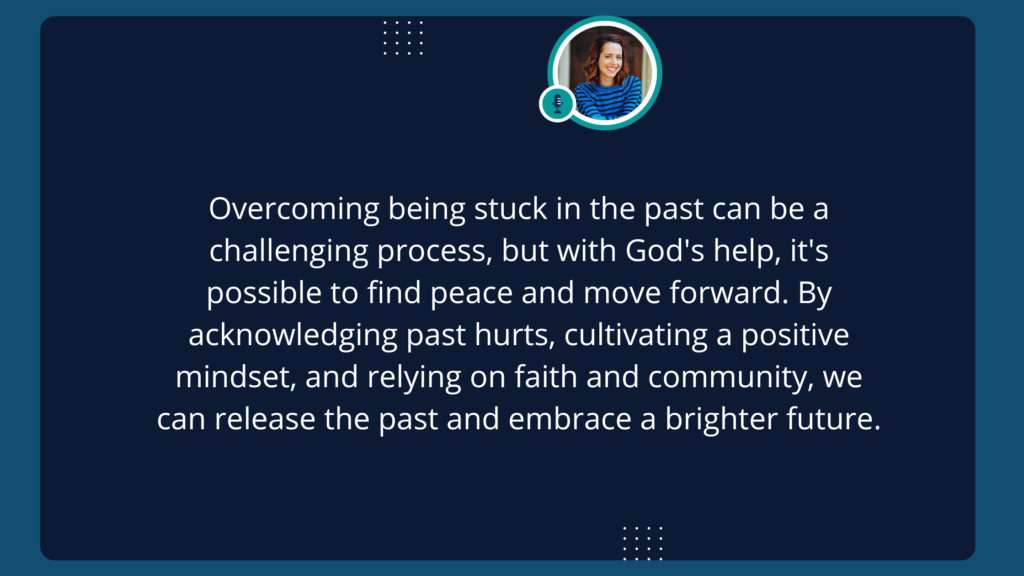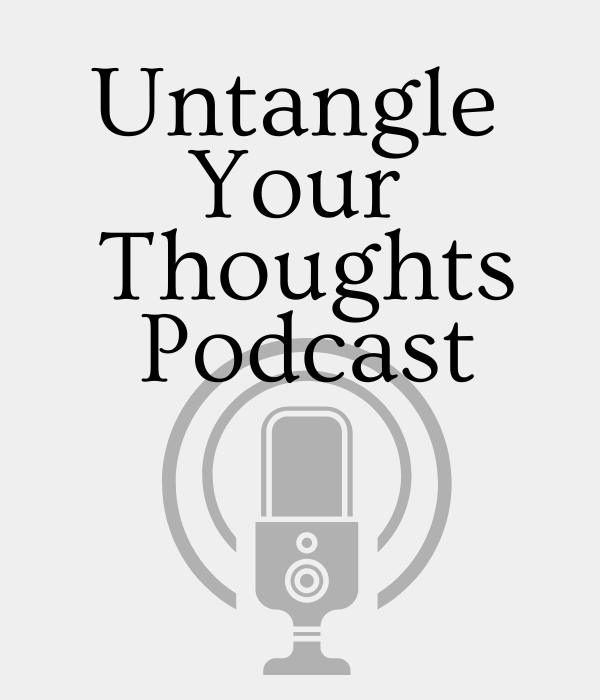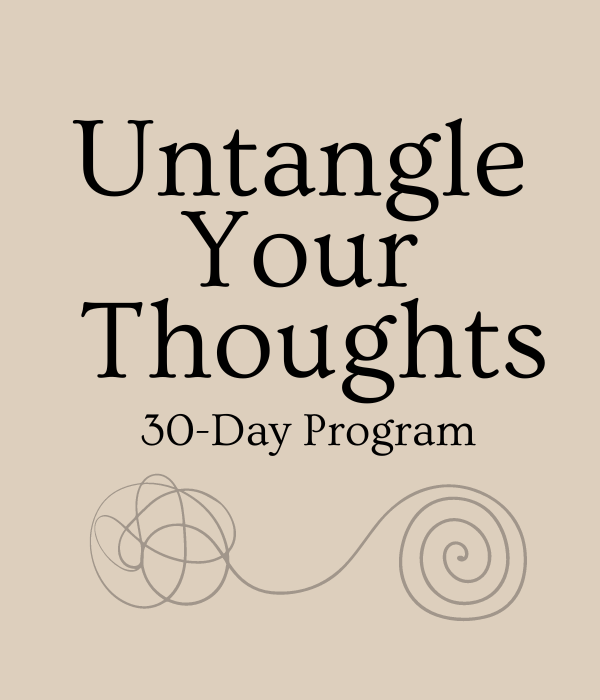I’m sorry for the times you felt like you had to choose between God or the pain you experienced. And I’m sorry for all the times you felt like you had to get yourself together to go to God with your pain. When we feel that way, it is easy for us to get stuck in the past.
I want to remind you that you are not alone in feeling this way.
I received the message in my inbox, from my Facebook support group, with a desperate plea from her, “I’m ready to change and I’m ready to heal and be a better person, I’m tired of being in pain and stuck in the past.”
I felt her pain as I read through her messages to me because I know the pain well. As we talked about what she was going through and about joining my mentorship program, she shared how she wanted God to take it all away.
Sometimes when the pain hits, it feels like we can barely stay afloat or see anything else than what we experienced. We relate back to the pain. We want to bring it up in conversations. Mainly, we want to be done with it. Over it. Instead, some people get stuck in the past, unable to let go of memories or regrets.
Understanding the Effects of Being Stuck in the Past
I recently had a conversation with my friend over Chick-Fil-A french fries, talking with her about pain and suffering. I was posing the question, “What if we welcomed pain instead of pretending it won’t come for us again?”
I know the conversations, because I have them with the women I mentor inside of my mentorship program and in real life. A conversation that goes something like this, “I don’t know how much more I can take and why does this keep happening to me.”
A result of things happening based on a fallen world and broken people, not processing through the pain that comes, which then becomes compounded, and believing God isn’t good because pain exists.
I wonder if we knew one day the pain would come for us again, that we wouldn’t be so blindsided? That we could say, “Here it is again, Lord, help me through this like you always have.” Walking with God meant we didn’t deny our reality but that we had full permission to bring our feelings to the table with Him.
It’s not that we anticipate “the other shoe to drop,” but that we recognize the beautiful thing we call “doing life with people” will cause love and pain. The depth we love can be the depth we experience pain. How do we prevent from being stuck in the past? By not ignoring the reality of what happened.
They both go hand in hand with one another. How we learn to keep our love on for people even when pain is involved, to keep our hearts soft when the pain wants to make our hearts become hard.

Steps for Letting Go of the Past and Healing with God
So how do we do this? What’s the first step to processing pain?
Forgiveness. I know reading that could have caused you to cringe because forgiveness in itself is it’s own process. However, forgiveness softens our hearts toward the other person and the pain. It’s releasing the pain into God’s hands.
Here are a few things for us to remember about forgiveness as we process through our pain.
1. Forgiveness is not an emotion.
There are things that happen to all of us in this life that can deeply hurt us. The emotions and feelings that arise in times of pain will take time to heal. It’s a process.
However, forgiveness is an act of love and mercy that God has called us to, and the Holy Spirit anoints us to do. Knowing forgiveness isn’t something we feel ready to do but do it anyways allow us to keep moving forward and not getting stuck in the past.
2. Forgiveness makes way for healing to come.
Forgiveness opens your heart to the Father, abiding in His love that gives a place for your pain to heal so that you don’t give way for bitterness to grow in your heart.
Don’t confuse forgiveness for feeling good about what happened because feelings can take time to heal.
3. Forgiveness is not forgetting.
Therefore, we do not forgive and forget. We forget, leave behind, our pain to keep it in its proper place.
To answer the question of whether you should forgive and forget let’s look to Paul. Paul shares in Philippians 3:13-14 that he forgets the past and things behind him and reaches for things set before him.
How to Not Get Stuck in the Past
Paul doesn’t forget that he stirred up a mob that killed Stephen. He keeps his past in his past. Paul does not get stuck in the past.
To forget is to receive forgiveness and not allow your past to dictate your present or run your future.
Forgiveness is not trusting, nor is it ignoring an offense.
Forgiveness is simply the release of debt. We are releasing someone of debt. To forgive and forget doesn’t mean we don’t remember or try to act like we don’t care anymore.
Releasing someone of their debt says, “I am going to give you what you don’t deserve. You don’t owe me anything”
God is the only one who can avenge. He is the judge. Knowing this helps prevent us from getting stuck in the past.
Romans 12:19, “Beloved, never avenge yourselves, but leave it to the wrath of God, for it is written, “Vengeance is mine, I will repay, says the Lord.”
Here Are Some Tips on How to Not Get Stuck in the Past and Heal with God:
Practice mindfulness: By focusing on the present moment, we can avoid getting stuck in the past—mindfulness practices can help us recalibrate our hearts toward God.
Seek forgiveness: Holding onto anger, resentment, and other negative emotions can keep us trapped in the past. By seeking forgiveness and extending it to others, we can release these negative emotions and move forward.
Turn to God: Whether through prayer, meditation, or other spiritual practices, turning to God can help us find strength, guidance, and comfort during difficult times.
Surround yourself with a faithful community: Surrounding ourselves with people who encourage us and lift us up can help us stay positive and focused on the future.
Seek professional help if needed: If past trauma or emotional issues are holding you back, seeking professional help from a therapist or counselor can be a powerful tool for healing.
Embrace personal growth: By focusing on personal growth and development, we can shift our focus away from the past and toward a brighter future. This can involve setting new goals, learning new skills, or embracing new opportunities.
Jesus paid our debt that was owed. There was no way for us to repay God for our debt. God so loved us that He sent Jesus, and in that, He forgave us of our debt.
Forgiving others starts with receiving forgiveness from Jesus.
Forgiveness is one of the first steps to process through our pain. We need Jesus and what He has done for us to remind us of the ability we have to forgive others.
Overcoming being stuck in the past can be a challenging process, but with God’s help, it’s possible to find peace and move forward. By acknowledging past hurts, cultivating a positive mindset, and relying on faith and community, we can release the past and embrace a brighter future.
Rooting for you,






